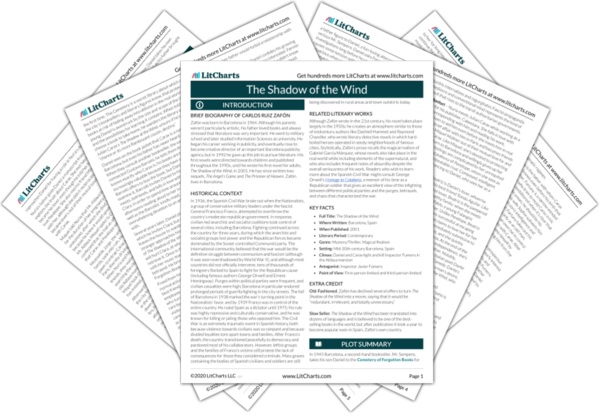Previous
City of Shadows: Chapter 35
|
Previous
City of Shadows: Chapter 35
|
The Shadow of the Wind: City of Shadows: Chapter 36 Summary & Analysis |
Next
City of Shadows: Chapter 37
|


Upgrade to unlock the analysis and theme tracking for all of The Shadow of the WindThe Shadow of the Wind!
Get LitCharts A+